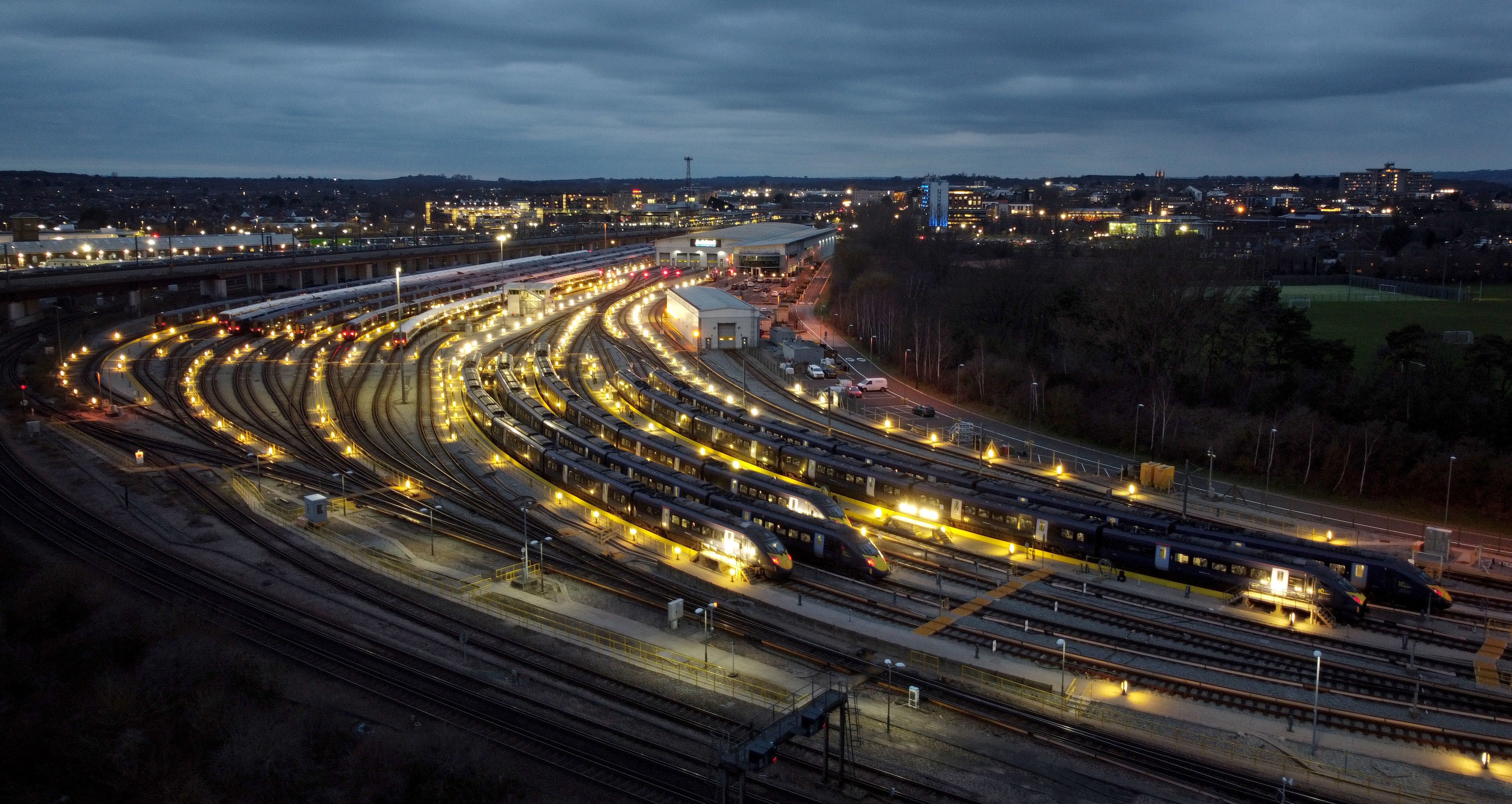New rail strike announced as walkout by drivers hits services
Aslef members have taken industrial action on Tuesday while the RMT has said London Overground workers will strike in a separate dispute over pay.
Your support helps us to tell the story
From reproductive rights to climate change to Big Tech, The Independent is on the ground when the story is developing. Whether it's investigating the financials of Elon Musk's pro-Trump PAC or producing our latest documentary, 'The A Word', which shines a light on the American women fighting for reproductive rights, we know how important it is to parse out the facts from the messaging.
At such a critical moment in US history, we need reporters on the ground. Your donation allows us to keep sending journalists to speak to both sides of the story.
The Independent is trusted by Americans across the entire political spectrum. And unlike many other quality news outlets, we choose not to lock Americans out of our reporting and analysis with paywalls. We believe quality journalism should be available to everyone, paid for by those who can afford it.
Your support makes all the difference.A fresh strike has been announced by rail workers as train services were crippled on Tuesday because of a walkout by drivers.
Services across southern England were cancelled or reduced as members of Aslef staged another strike in their long-running dispute over pay and conditions.
The strike forced people to drive to work, which led to huge traffic jams on roads including the M25.

The Rail, Maritime and Transport union (RMT) announced a strike by London Overground workers in a separate dispute over pay.
More than 300 union members will walk out for 48 hours on February 19 and again on March 4.
Security, station, revenue and control staff are among those taking industrial action.
The RMT said that Arriva Rail London (ARL), which has the contract on London Overground, has offered a below inflation pay offer.
Union members overwhelmingly voted for action in response.
RMT general secretary Mick Lynch said: “London Overground workers do an important job delivering services for Transport for London and supporting passengers on journeys throughout London.
“Our members are furious that they have been given a below inflation pay offer and want to see an improvement that represents the value they bring to the company.
“If this dispute cannot be resolved then RMT is more than prepared for a sustained period of industrial action to get London Overground workers the pay rise they deserve.”
Rail services are already being affected by a nine-day ban on overtime by Aslef members which started on Monday.
On Tuesday, drivers went on strike at Southeastern, Southern/Gatwick Express, Great Northern, Thameslink and South Western Railway followed by walkouts at Northern Trains and TPE on Wednesday, at LNER, Greater Anglia and C2C on Friday, at West Midlands Trains, Avanti West Coast and East Midlands Railway on Saturday February 3 and at Great Western, CrossCountry and Chiltern on Monday February 5.
South Western Railway urged passengers to only travel if “absolutely necessary” on Tuesday, warning that a significantly reduced service will operate on a limited number of lines.
A statement said: “Large parts of our network will be closed and trains will only run between 0700 and 1900. There will be no services outside of these times.”
There will be similar levels of disruption at other train operators embroiled in the dispute.
Where services do run they will start later and finish earlier than usual.
Picket lines were mounted outside railway stations.
Aslef’s general secretary Mick Whelan says some drivers have not had a pay rise for almost five years.
He has accused the Government of “giving up” trying to resolve the row.
The strikes were expected to be the first test of the minimum service levels legislation, aimed at ensuring train operators could run 40% of services.
However, none of the train companies are using the new law, which the Government is also planning to extend to other sectors.
Labour has said it will repeal the law if it wins the next general election.
Downing Street expressed disappointment at rail operators who are not using the legislation.
The Prime Minister’s official spokesman said: “It’s something the rail operators called for many months ago and the public would rightly expect them to be used if strike action is taking place.”
Asked if No 10 is disappointed with the operators, he said: “Yes, it’s something that we and the public expect them to use.
“It’s ultimately up to train operators to effectively manage their services, we have been as clear as possible that they should be as ready to use all powers available to them to reduce the impact of rail strikes on passengers.”